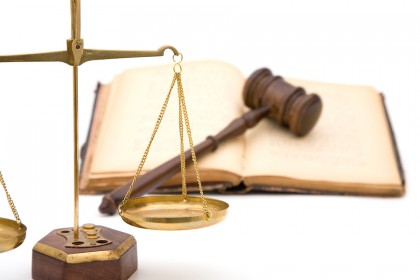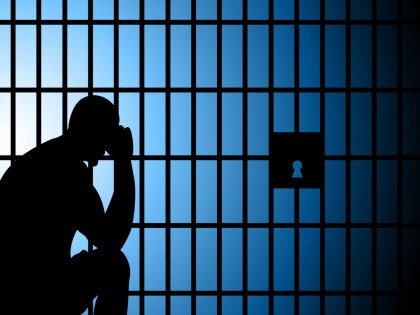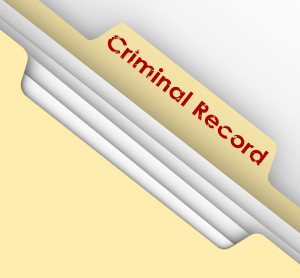Tag Archives: criminal lawyer oswego
My child was charged with a crime, what can I do?
Should I take a plea?
My lawyer wants me to take a plea, should I?
I sometimes get calls from a defendant that is being advised by their current attorney to “take a plea”. A plea is when a defendant agrees to enter a guilty plea without a trial in exchange for a lesser charge. They want to know if I think its a good idea. The answer is always- it depends. There are many different elements to consider when advising a defendant to take a plea. An experienced attorney will review all elements of your case from the initial police encounter, through the arrest, as well as examine evidence and make appropriate motions before negotiating with the District Attorney’s office with regard to a plea bargain. It is always a defendants right to a fair trial.
Only after meeting with a defendant and reviewing all the facts of the case can an attorney get a good sense if they feel that a plea is in the best interest of their client. Only after a thorough review of a case can an attorney make such determinations and be able to explain the options and risks of going to trial. Only an experienced criminal trial attorney can give you a realistic idea of what a trial entails and what the risks are to going to trial. If you or a loved one has been charged with a crime in Onondaga County and are unsure if a plea option is the best decision, call me. I will review your case for free, advise you of your rights to your own attorney. I have years of successful criminal trial experience in which to help you determine if a trial or a plea is the best possible route for your particular case.
If you have been charged with a crime, and are considering a plea in Onondaga County, call me immediately at (315) 474-5533. I offer a free consultation to review all the facts and circumstances of your matter so that I can best advise you proceeding forward.
How Do I Post Bail?
To post bail there are two types of bail- cash bail and bail bond.
Post Bail – Cash Bail
If both the person who will post bail and the defendant are in court, cash bail can be posted in the courthouse, and the defendant can be released before being transferred to jail. This most commonly occurs at the initial arraignment. If you plan to post bail for a defendant following an arraignment or other court appearance, you should tell a court officer, so that the defendant will be held in the building for release. Bail posted in the courthouse must be paid in cash; the courthouse cashiers do not accept any form of check.
Bail can also be paid at the Justice Center in Syracuse, NY, Local Justice Courts and other various City Courts and jails. Jails will accept certain kinds of certified or government checks as well as cash, but there are restriction on the amount and type.
Post Bail – Bail Bond
If you are posting a bond, you will need to find a bail bondsman. They can be located through the yellow pages or online, and often have offices near the courthouse. Bail bondsmen must licensed by New York State; make sure you deal with one who has a valid license.
How Do I Get My Bail Money Back?
If the defendant has made court appearances as required, cash bail should be returned at the end of the case. When the case is over, the judge should issue an order for the return of bail (“exonerating” the bail). The Local Court, City Court or Justice Center, Sheriff’s Department will issue a check to the person who deposited the bail. If the case has ended in a conviction, 3 percent of the bail will be kept by the government. If your bail has not been returned after 6 weeks you may wish to contact an attorney to assist you in its return. You should have your bail receipt available when you call, so that you can provided the information they will need to find the case.
What If My Bail was Forfeited?
If a defendant does not come to court when required to do so, the judge may order that bail be “forfeited,” or kept by the City. There is a procedure, called “remission of forfeiture,” which allows a person who posted bail to apply for it to be returned if it has been forfeited. Some people hire a lawyer to do this, but you can do it on your own if you cannot afford a lawyer. Keep in mind that there is a strict deadline for a “remission of forfeiture” application: you must apply within one year of the date that the court ordered the bail forfeited. If the bail was forfeited in Supreme Court (a felony case), the application must be made to the court that issued the forfeiture order. If it happened in Criminal Court (a misdemeanor case), the application is made to a Supreme Court judge in that county.
An application for “remission of bail” must be made in writing. If you are proceeding without a lawyer, you should ask the court clerk for instructions about how to proceed.
What if I can’t post the cash bail or bond?
First, you or your family member has to find out when you are scheduled to go in front of the Judge. Hiring any attorney to help you convince the Judge not to set a high bail or release you on your own recognizance is suggested.
If they won’t set bail, this means you may have two prior felonies. You will need an attorney to obtain a bail hearing in front of the Judge able to set bail under those circumstances.
Contact William Balduf, Esq. and let his 30 years of experience work for you. Serving Syracuse and Oswego, New York.
See also:
SHOULD I TALK TO POLICE?
Criminal Charges and Defense
SHOULD I TALK TO POLICE?
 TALKING TO THE POLICE CANNOT HELP YOU.
TALKING TO THE POLICE CANNOT HELP YOU.
If the police are talking to you, it’s because they suspect you have committed a crime. Often law enforcement personnel start by saying they do not actually suspect you. That they are looking at someone else for the crime. They just want some information from you. Remember if the police lie to you– this does not protect you from the statements you make.
Anything you say can be used against you even if you think it has nothing to do with the criminal case being discussed.
Any admission might be used later on to put you or someone you care about, at the scene, with someone like a co-defendant or co-conspirator, and would be one less thing the prosecution would have to prove. You will hand them what they need on a silver platter. Even if you are innocent, and you only tell the truth, and you don’t tell any little white lies, it is possible to give the police some detail of information that can be used to convict you.
The benefit to having an experienced attorney represent you is that your response is “please contact my attorney”-then say nothing else. Most people look to hire a lawyer after they have been arrested and charged with a crime.
But if you are being investigated for a crime, having a lawyer can sometimes prevent you from ever being charged with a crime at all.
WHAT IF THEY THREATEN TO THROW ME IN JAIL.
Remember, you are never obligated to talk to the police. But they may keep calling if they want to question you, for whatever reason.
They can come to your home, or your work and the continuous requests and contacts they make can be quite threatening and intimidating. They are calling to you gather evidence for a case, very possibly against you.
Don’t talk to them even if they threaten to put you in jail if you don’t talk with them. If they have detained you, it’s because they already have enough evidence to arrest you and want to see if you will make some kind of admission and thus, give them an even stronger case against you. Seldom is confessing or giving law enforcement a stronger case a good way to stay out of jail.
Be wary, even if successful in staying out jail for a day your statement could ultimately land you in jail for years.
For some reason so many people think they are savvy enough or eloquent enough or well educated enough to be able to talk to the police and convince them not to arrest them. You are not smarter than the police. No one ever talked his way out of an arrest—and you prove this if you talk to them without representation.
EVEN IF YOU ARE GUILTY AND WANT TO CONFESS AND GET IT OFF YOUR CHEST..DON’T TALK TO THE POLICE.
People plead guilty every day. There is plenty of time to confess and admit guilt at a later stage of the proceedings. What’s the rush? Get a lawyer first. Let the lawyer set up a deal whereby you get something in exchange for accepting responsibility for the offense. A better plea bargain, or maybe even immunity. If you confess to the police, you get nothing in return. Zero. In fact, you probably get a harsher prosecution because the state’s case is now airtight, now that you have confessed.
EVEN THE INNOCENT CAN GET CAUGHT IN A LIE. THERE ARE NO GUARANTEES OF AN ACCURATE ACCOUNT OF YOUR STATEMENT BY POLICE.
But no matter what you say, anything could be misconstrued, misinterpreted, or otherwise used against you. There is no Miranda in effect if the police are just talking to you, and you aren’t under arrest. And even then, Miranda does not offer the protections most people think it does.
Police can take what you say out of context, and deliberately or accidentally misunderstand your statement, and turn it around against you. If you don’t talk to the police, they won’t have anything they can say about you.
A person who is completely innocent and asserting their innocence can simply deny some insignificant fact, tell some little white lie or simply make an inadvertent mistake of fact in their effort to sound as innocent as possible. But if the police have evidence that you claimed something that was not true it makes your entire statement look like a lie. Can’t you see it now….just like on TV the prosecutor will ask:“Why did he lie to the police? Why indeed would he lie to the police, unless he were guilty?” Your credibility is now shot.
What if the police officer remembers something wrong? What if he remembers you said “X” when actually you said “Y”? If the police officer takes the witness stand and contradicts your statements at trial, it will also destroy your credibility. You can take the witness stand and say “I never said that!” But it’s your word versus a police officer. Who’s the jury going to believe?
IT IS NEARLY IMPOSSILBE TO TELL THE SAME STORY TWICE EXACTLY THE SAME WAY EVEN IF YOU ARE HONEST AND INNOCENT.
If you tell your story one time at trial and you tell the truth and you’re innocent, there’s very little the prosecutor can do by way of cross examination. But if you’ve told your story twice, once at trial, and once previously in a statement to the police, many months apart, the chances are very high that, even if you are telling the truth, some little details in your statement are going to change.
A good cross examiner will pick up on these changes and will relentlessly question you about them in an effort to make it look like you are lying.
THE POLICE DO NOT HAVE THE AUTHORITY TO MAKE DEALS OR GRANT LENIENCY.
People say all the time that they gave a statement to the police because the police told them that they would be better off if they confessed, better off if they admitted what they did wrong, better off if they cooperated. The police will make vague statements that things will go easier on the suspect if he simply admits what he did wrong. The police will also make vague statements suggesting that they will do what they can to help the suspect, that they will put in a good word for the suspect, if the suspect will just come clean. Yes, they can mislead you and what you say can still be held against you.
So remember the police do not have authority to make deals, grant immunity, or negotiate plea agreements without the direct authority of the District Attorney or US Attorney (in Federal Court). Despite the impression that the police are helping you, they are actually helping themselves.
CAN YOU REALLY PREVENT A CRIMINAL CHARGE?
Not in every case, but absolutely, it often works out that way. If the police simply don’t get enough evidence, then they can’t charge anyone. The case will die.
And if you do still get charged, it was almost certainly going to happen anyway and was not avoidable. So we move on to other defenses and ways to beat the case.
ve committed a crime. Often law enforcement personnel start by saying they do not actually suspect you. That they are looking at someone else for the crime. They just want some information from you. Remember if the police lie to you– this does not protect you from the statements you make. Do not talk to police.
Anything you say can be used against you even if you think it has nothing to do with the criminal case being discussed.
Any admission might be used later on to put you or someone you care about, at the scene, with someone like a co-defendant or co-conspirator, and would be one less thing the prosecution would have to prove. You will hand them what they need on a silver platter. Even if you are innocent, and you only tell the truth, and you don’t tell any little white lies, it is possible to give the police some detail of information that can be used to convict you.
The benefit to having an experienced attorney represent you is that your response is “please contact my attorney”-then say nothing else. Most people look to hire a lawyer after they have been arrested and charged with a crime.
But if you are being investigated for a crime, having a lawyer can sometimes prevent you from ever being charged with a crime at all.
WHAT IF THEY THREATEN TO THROW ME IN JAIL.
Remember, you are never obligated to talk to police. But they may keep calling if they want to question you, for whatever reason.
They can come to your home, or your work and the continuous requests and contacts they make can be quite threatening and intimidating. They are calling to you gather evidence for a case, very possibly against you.
Don’t talk to them even if they threaten to put you in jail if you don’t talk with them. If they have detained you, it’s because they already have enough evidence to arrest you and want to see if you will make some kind of admission and thus, give them an even stronger case against you. Seldom is confessing or giving law enforcement a stronger case a good way to stay out of jail.
Be wary, even if successful in staying out jail for a day your statement could ultimately land you in jail for years.
For some reason so many people think they are savvy enough or eloquent enough or well educated enough to be able to talk to the police and convince them not to arrest them. You are not smarter than the police. No one ever talked his way out of an arrest—and you prove this if you talk to them without representation.
EVEN IF YOU ARE GUILTY AND WANT TO CONFESS AND GET IT OFF YOUR CHEST..DON’T TALK TO THE POLICE.
People plead guilty every day. There is plenty of time to confess and admit guilt at a later stage of the proceedings. What’s the rush? Get a lawyer first. Let the lawyer set up a deal whereby you get something in exchange for accepting responsibility for the offense. A better plea bargain, or maybe even immunity. If you confess to the police, you get nothing in return. Zero. In fact, you probably get a harsher prosecution because the state’s case is now airtight, now that you have confessed.
EVEN THE INNOCENT CAN GET CAUGHT IN A LIE. THERE ARE NO GUARANTEES OF AN ACCURATE ACCOUNT OF YOUR STATEMENT BY POLICE.
But no matter what you say, anything could be misconstrued, misinterpreted, or otherwise used against you. There is no Miranda in effect if the police are just talking to you, and you aren’t under arrest. And even then, Miranda does not offer the protections most people think it does.
Police can take what you say out of context, and deliberately or accidentally misunderstand your statement, and turn it around against you. If you don’t talk to the police, they won’t have anything they can say about you.
A person who is completely innocent and asserting their innocence can simply deny some insignificant fact, tell some little white lie or simply make an inadvertent mistake of fact in their effort to sound as innocent as possible. But if the police have evidence that you claimed something that was not true it makes your entire statement look like a lie. Can’t you see it now….just like on TV the prosecutor will ask:“Why did he lie to the police? Why indeed would he lie to the police, unless he were guilty?” Your credibility is now shot.
What if the police officer remembers something wrong? What if he remembers you said “X” when actually you said “Y”? If the police officer takes the witness stand and contradicts your statements at trial, it will also destroy your credibility. You can take the witness stand and say “I never said that!” But it’s your word versus a police officer. Who’s the jury going to believe?
IT IS NEARLY IMPOSSILBE TO TELL THE SAME STORY TWICE EXACTLY THE SAME WAY EVEN IF YOU ARE HONEST AND INNOCENT.
If you tell your story one time at trial and you tell the truth and you’re innocent, there’s very little the prosecutor can do by way of cross examination. But if you’ve told your story twice, once at trial, and once previously in a statement to the police, many months apart, the chances are very high that, even if you are telling the truth, some little details in your statement are going to change.
A good cross examiner will pick up on these changes and will relentlessly question you about them in an effort to make it look like you are lying.
THE POLICE DO NOT HAVE THE AUTHORITY TO MAKE DEALS OR GRANT LENIENCY.
People say all the time that they gave a statement to the police because the police told them that they would be better off if they confessed, better off if they admitted what they did wrong, better off if they cooperated. The police will make vague statements that things will go easier on the suspect if he simply admits what he did wrong. The police will also make vague statements suggesting that they will do what they can to help the suspect, that they will put in a good word for the suspect, if the suspect will just come clean. Yes, they can mislead you and what you say can still be held against you.
So remember the police do not have authority to make deals, grant immunity, or negotiate plea agreements without the direct authority of the District Attorney or US Attorney (in Federal Court). Despite the impression that the police are helping you, they are actually helping themselves.
CAN YOU REALLY PREVENT A CRIMINAL CHARGE?
Not in every case, but absolutely, it often works out that way. If the police simply don’t get enough evidence, then they can’t charge anyone. The case will die.
And if you do still get charged, it was almost certainly going to happen anyway and was not avoidable. So we move on to other defenses and ways to beat the case.
Contact William Balduf, Esq. and let his 30 years of experience work for you. Serving Syracuse and Oswego, New York.
See related articles:
How Do I Post Bail?




